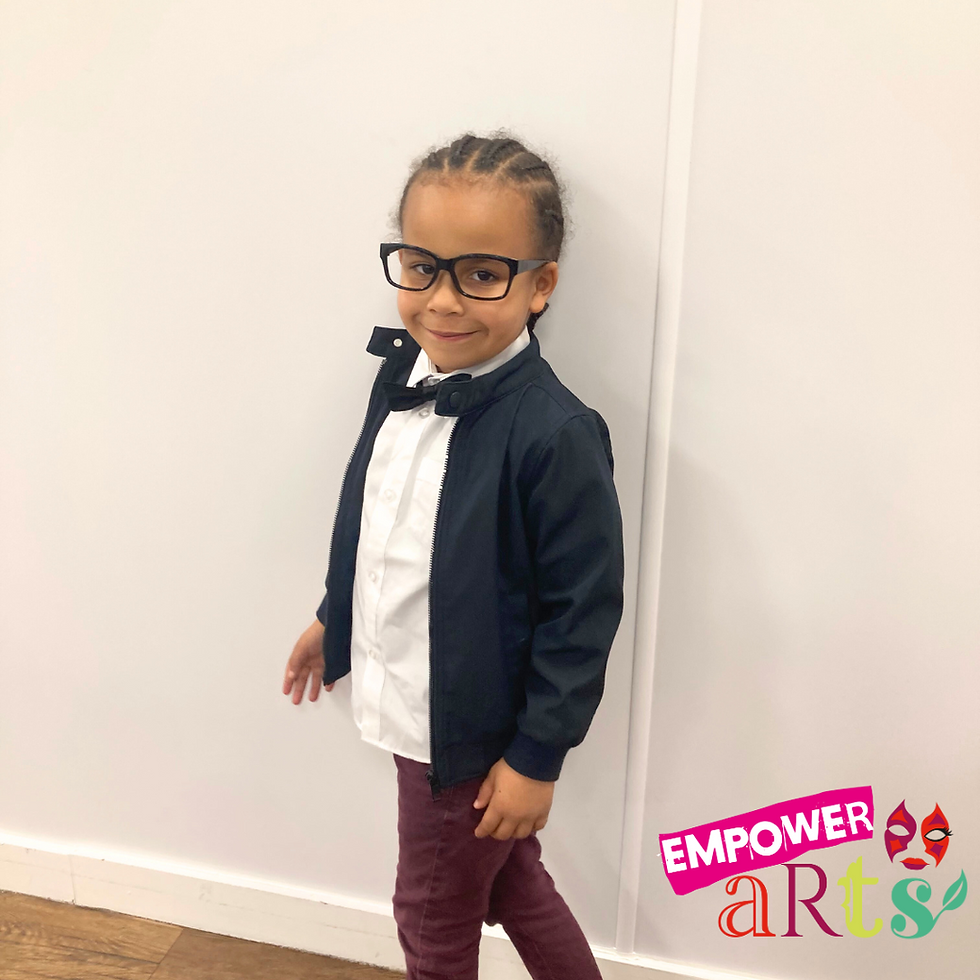What Makes Our Toddler and Preschool Drama Classes Different?
- Taja Morgan
- May 22, 2024
- 3 min read

Engaging young children in drama classes can be a transformative experience, but our classes offer a unique approach that sets us apart. Here’s what makes our toddler and preschool drama classes special and why they’re an exceptional choice for your child:
1. Small Class Sizes
We keep our classes small to ensure that each child receives personalised attention. This allows us to cater to individual needs, helping each child to thrive and feel valued.
2. Parent Involvement
Parents stay with their children during the classes, creating a supportive family atmosphere. This involvement enhances the learning experience and provides parents with insights into their child’s development.
3. High-Energy, Fun Learning Environment
Our classes are designed to be high-energy and fun, ensuring children remain engaged and excited about learning. We use minimal props and focus on imagination, making each class unique and dynamic.
4. Diverse and Important Topics
Each week, we cover different topics including important ones such as bullying, mental health, personal hygiene, road safety, and more. These lessons are integrated into our drama activities, making learning relevant and practical.
5. Child-Led Activities
Our classes are child-led, encouraging independence and self-motivation. Children have the freedom to explore their interests and express their creativity in a supportive environment.
6. Unique Songs and Lesson Plans
We use our own unique and originated lesson plans and songs, crafted to engage young minds and cater to their developmental needs. This approach ensures that our classes are fresh, exciting, and tailored to each child's interests and abilities.
7. Boosts Confidence
Our drama classes provide a supportive environment where children can express themselves freely. This helps build self-confidence as they learn to trust their instincts and voice their ideas without fear of judgment.
8. Enhances Communication Skills
Through acting, children practice speaking clearly, listening attentively, and responding appropriately. These skills are essential for effective communication and are beneficial in everyday interactions.
9. Fosters Creativity
Drama encourages children to use their imagination and think outside the box. This creativity can extend into other areas of their lives, helping them to approach problems with innovative solutions.
10. Improves Social Skills
Working in groups on drama activities teaches children to collaborate, share, take turns, and understand different perspectives. These social skills are crucial for building healthy relationships.
11. Develops Emotional Intelligence
Through role-play, children explore different emotions and situations, which helps them understand and manage their own emotions and empathise with others.
12. Enhances Concentration
Drama activities often require children to focus and pay attention to details, whether it’s remembering lines or cues. This practice improves their concentration and attention span.
13. Encourages Physical Development
Acting often involves movement and physical activity, which helps with coordination, balance, and overall physical fitness.
14. Stimulates Cognitive Development
Drama requires children to think critically and make decisions quickly, which stimulates cognitive growth and enhances problem-solving skills.
15. Promotes Language Development
Learning new vocabulary, practicing dialogue, and engaging in storytelling all contribute to a child’s language development and literacy skills.
16. Builds Resilience
Through drama, children learn to handle constructive criticism and develop resilience. They understand that making mistakes is part of learning and growing.
17. Teaches Cultural Awareness
Exposure to different characters, stories, and cultural backgrounds in drama helps children appreciate diversity and fosters cultural awareness and sensitivity. For example, we cover topics like Black History Month, Diwali and Chinese New Year to name a few, to broaden their understanding.
18. Early Years Foundation Stage (EYFS) Curriculum
Our classes complement the EYFS curriculum, giving children a head start before they begin formal schooling. The activities align with educational goals, ensuring a smooth transition to school.
Conclusion
Our toddler and preschool drama classes offer a distinctive blend of fun, education, and development, making them an outstanding choice for young children. With small class sizes, parent involvement, and a focus on important life skills, our classes provide a nurturing environment where children can grow, learn, and thrive. Join us and watch your child develop confidence, creativity, and a love for learning in our unique drama classes.
Ready to give your child the gift of drama? Sign up for our weekly classes today and see the amazing benefits unfold!
Other related posts you might enjoy:







Comments